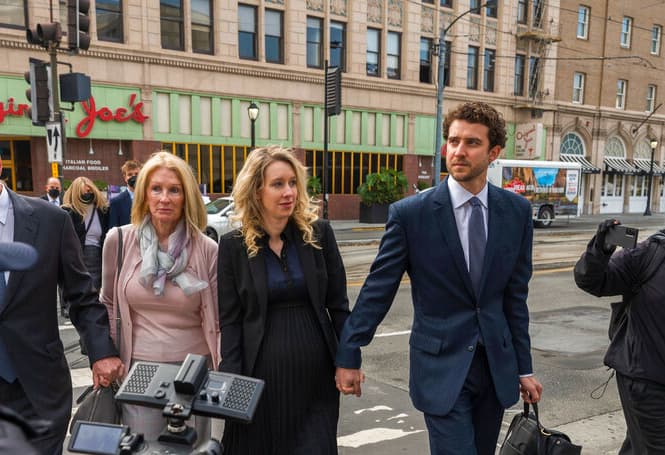Libertarian Land: Use Contract Enforcement, Not Criminal Law, To Deter Fraud
The criminal approach is plausibly less effective at reducing fraud because its existence lulls private parties into thinking government has addressed the problem.

Should governments criminalize fraud? At first blush, the question might seem bizarre. Surely even the purest libertarian opposes private deceptions that, in effect, steal money from others? The Libertarian Party platform explicitly endorses government prohibitions of fraud.
Yet this is one case where libertarians have perhaps accepted too large a role for government. In Libertarian Land, government does not criminalize fraud; government’s only role in reducing fraud consists of enforcing contracts.
Consider a chief executive who embezzles, thus cheating owners out of profits.
One possible remedy is that the government prosecutes the chief executive with the threat of jail and fines. The risk of such punishment might discourage other chief executives from similar behavior. This approach might also discourage insider trading or the production and marketing of faulty products.
In Libertarian Land, government does nothing about such fraud on its own. Instead, affected owners sue their chief executive for lost profits, since such “theft” violates the chief executive’s employment contract. The civil court system then adjudicates such disputes and forces restitution of embezzled funds.
The civil and criminal approaches are not mutually exclusive; currently, those who commit fraud can face both kinds of penalties.
The key questions are then whether the criminal approach more effectively deters fraud and whether this approach has unwanted side effects, compared to leaving fraud entirely to civil suits or private mechanisms.
The criminal approach is plausibly less effective at reducing fraud because its existence lulls private parties into thinking government has addressed the problem. Absent the criminal system, private parties would face stronger incentive to adopt contracts that reduce fraud, or to take other steps that protect themselves.
Thoughtful owners in Libertarian Land, for example, write contracts with managers that feature claw back provisions or delayed compensation. Owners also engage in more oversight. Investors in Libertarian Land, which has no ban on insider trading, protect themselves by holding highly diversified portfolios, which is usually the right strategy anyway.
Market forces, moreover, discourage fraud even before civil liability kicks in. An auto manufacturer that exaggerates the fuel efficiency of its cars loses customers when independent sources report the exaggerations. Chief executives who embezzle have a hard time getting re-hired.
A different limitation of the criminal approach is that its financial penalties flow mainly to the government. The civil approach provides restitution to those harmed by fraud.
The criminal approach also allows government prosecutors to choose targets based on political pressures. Recent lawsuits against opioid, gun, and fossil fuel manufacturers all use debatable fraud allegations to target politically unpopular industries.
The civil approach has its own potential negatives. Bringing civil suits can be expensive, and some plaintiffs have limited funds. Similarly, some harms are small per victim, so the incentives to bring suits might be modest. Class action suits, however, address both concerns, as do lawyers who work on contingency.
A different limitation of the civil approach is that some fraudsters impose damages greater than their ability to compensate victims. Potential victims, however, can protect themselves by patronizing companies with deep pockets or purchasing appropriate insurance.
A natural question about the Libertarian Land approach is why actions like theft and violence are crimes while fraud is not?
The difference is that the victims and perpetrators of fraud have an explicit prior relation. Stockholders should know their chief executive might embezzle. People who buy stock from insiders are aware they are taking this risk. Car purchases should be aware they might be buying a lemon.
The same is not true of a homeowner whose house is burgled, or an individual assaulted on a city street. These victims have no prior knowledge of the perpetrator nor easy ways to avoid being victimized.
Fraud is indeed a problem, even in Libertarian Land. Yet contract enforcement and private behavior limit its impact more effectively, and with fewer side effects, than criminalization.

